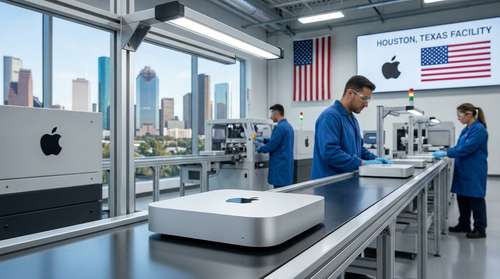In an effort to address years-long complaints from consumer advocates about the difficulty and high costs of repairing its sleek devices, Apple, the world's largest tech company, announced its support for a U.S. right-to-repair bill.
Moreover, this move aligns with President Joe Biden's goal of promoting competition and protecting consumers from excessive fees and actions that inflate prices.
Apple also includes making iPhone parts, tools, and documentation available to both independent repair shops and consumers nationwide, leading as an example for other companies to do the same.
This means that there will be Apple parts for sale in all Apple stores in the US and beyond.
Accessibility and Electronic Waste
The common use of restrictive practices across the industry has led to elevated costs for consumers, hindered innovation, restricted opportunities for independent repair shops, and resulted in unnecessary electronic waste, according to Federal Trade Commission Chair Lina Khan.
However, Apple's decision to endorse federal legislation and allow independent repair shops to service its products marks a notable shift in the company's strategy.
Meanwhile, Apple aims to highlight the longevity and resale value of its devices, as well as facilitate their repairability and access to spare parts.
As early as 2019, Apple started distributing parts and manuals to select independent repair shops. Recently, the company supported right-to-repair legislation in its home state of California, which mandates that firms provide repair shops and customers access to necessary parts, tools, and manuals at fair and reasonable prices, which sounds like good news to all iPhone users in the US.

Thus, Brian Naumann, Apple's vice president for service and operations, affirmed their intention to adhere to California's repair provisions nationwide.
Moreover, Apple believes in the benefits of a national law that strikes a balance between repairability and product integrity, usability, and physical safety at large.
National Legislation and Environmental Impact
The director of the National Economic Council, Lael Brainard, commended Apple's decision and urged Congress to enact national legislation.
Meanwhile, several states, including California, Colorado, New York, and Minnesota, have already passed their own right-to-repair laws, while others have introduced similar legislation.
Thus, Brainard emphasized the potential for private companies, like Apple, to reduce costs for consumers and minimize electronic waste accumulation in landfills.
By repairing consumer electronics devices, American consumers could save an estimated $49.6 billion annually and significantly decrease the nearly 7 million tons of electronic waste generated in the U.S. each year, while bolstering small independent repair businesses.
Apple's Commitment and Consumer Advocacy
Apple's commitment to supplying diagnostic tools in line with California's legislation, as well as providing spare parts to repair shops in 2019, demonstrates its dedication to helping users maximize the benefits of being a part of the Apple ecosystem.
However, some consumer advocates expressed reservations due to Apple's historic implementation of repairs with certain limitations.
U.S. PIRG, an advocacy group for right-to-repair, emphasized the importance of monitoring Apple and other companies to ensure practical experiences aligned with the promises made.
Conclusion
After initially opposing right-to-repair rights, Apple's recent decision signifies a significant change in its approach. With a call for a national right-to-repair law, Apple now allows customers nationwide to repair their damaged iPhones and iPads or seek assistance from independent repair shops.
Thus, under President Biden's focus on consumer protection, Apple's move contributes to reducing unnecessary costs, promoting competition, and fostering a more environmentally conscious approach to electronic waste.
Through accessibility to Apple parts for sale and supporting the right to repair, Apple sets a precedent for the tech industry to prioritize repairability and customer satisfaction.




